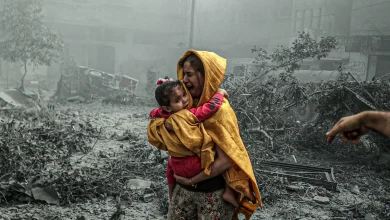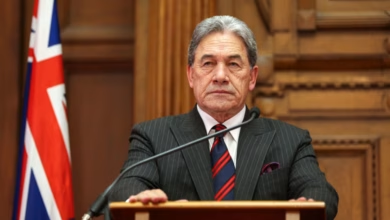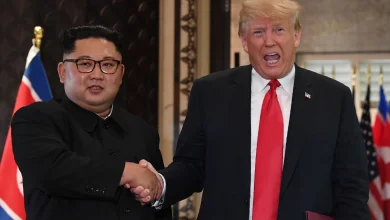
US President Donald Trump has placed the responsibility for Gaza’s future squarely on Israel’s shoulders, indicating that Washington is providing tacit support for Israel’s plans to intensify its military offensive in the war-torn Palestinian territory. While many European and Arab leaders urged Israeli Prime Minister Benjamin Netanyahu to reconsider his approach, Trump has effectively granted him the freedom to act, regardless of potential backlash from the international community.
Israel’s Military Strategy Against Hamas
After nearly two years of devastating conflict, Israel’s security cabinet approved Netanyahu’s strategy to “defeat” Hamas following the attack on southern Israel on 7 October, 2023, which triggered the current war. When asked about supporting such a plan, Trump emphasized his focus on increasing humanitarian aid to Gaza, stating, “As far as the rest of it, I really can’t say — that’s going to be pretty much up to Israel.”
Secretary of State Marco Rubio on Thursday echoed Trump’s sentiments, asserting, “Ultimately, what Israel needs to do for Israel’s security will be determined by Israel.” These comments reflect a clear US strategy: since ceasefire talks between Israel and Hamas collapsed, Washington has aligned closely with Israel’s perspective. This shift followed US envoy Steve Witkoff’s visit to Israel last week.
While the US has increased pressure on Israel to allow more humanitarian aid into Gaza, it has also insisted on the release of all Israeli hostages held by Hamas. US Vice President JD Vance articulated these goals during discussions with British Foreign Secretary David Lammy, stating, “We want to make it so that Hamas cannot attack innocent Israeli civilians ever again, and we think that has to come through the eradication of Hamas.”
Challenges in Securing a Ceasefire
Since returning to the White House in January, Trump has consistently supported Israel, even while advocating for improved humanitarian assistance. However, he appears to have abandoned efforts to secure a ceasefire after repeated mediation failures. Talks in Doha collapsed last month when Hamas refused to agree to a deal for releasing hostages. Currently, Hamas holds 49 Israeli hostages, with 27 presumed dead.
US Ambassador to Israel Mike Huckabee, known for his provocative remarks, criticized those who oppose Israel’s Gaza strategy. He questioned whether Israel should “surrender to Hamas” while its hostages suffer. Huckabee’s comments came in response to British Prime Minister Keir Starmer, who labeled Netanyahu’s approach as “wrong.”
In his EWTN interview, Rubio acknowledged the media’s focus on the humanitarian crisis in Gaza. He expressed concern over the lack of attention given to the plight of the remaining Israeli hostages. As the situation evolves, Washington has sharply criticized international efforts to formally recognize a Palestinian state, particularly those led by French President Emmanuel Macron. US officials argue that such recognition could embolden Hamas and hinder peace efforts.





